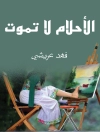U. G. Krishnamurti’s ’No Way Out’ is a profound exploration of human consciousness that rejects conventional paths to enlightenment. Written in a candid and unorthodox style, the text eschews the typical spiritual jargon in favor of a stark, raw examination of reality. Krishnamurti articulates his radical philosophy, which dismisses the notion of seeking liberation through traditional spiritual practices, presenting instead a direct confrontation with the self. His insights reflect a deep understanding of human psychology and challenge the reader to dismantle their own preconceived notions of existence and selfhood. Krishnamurti, an influential philosopher and yogi, spent decades grappling with the complexity of the spiritual journey, which inspired him to confront the limitations of established thought. His experiences, ranging from encounters with renowned spiritual figures to his own moments of existential crisis, positioned him uniquely to question the essence of seeking—a theme central to ’No Way Out’. Through this work, he aims to prompt individuals towards a radical awakening, transcending the mind’s confines. ’No Way Out’ is highly recommended for those interested in alternative spiritual discourse and psychological inquiry. Its unfiltered approach invites readers to embark on a transformative journey, challenging them to confront the nature of their being without any ready-made answers. For anyone seeking a fresh perspective on spirituality, this book serves as an essential compass.
Om författaren
Uppaluri Gopala Krishnamurti, known more commonly as U. G. Krishnamurti or just U.G., was a philosopher who questioned the very value of knowledge and spiritual searches. Born on July 9, 1918, in Masulipatnam, Andhra Pradesh, India, and not related to his more famous contemporary Jiddu Krishnamurti, U.G. carved a niche for himself among thinkers who challenged the status quo. U.G. often referred to as the ’anti-guru’, spent his life undermining traditional concepts of enlightenment and spirituality, leading many to view him as a critic of the sacred cows of organized religion and mystical thought. His outspoken views on consciousness and the human condition distinguish him in the pantheon of Indian philosophilcal voices. His book ’No Way Out’ distills many of his core ideas, suggesting that the search for spiritual enlightenment is a futile endeavor. U.G. argued that there is no real escape from reality; instead, he advocated for an acceptance of the world as it is, without the constant pursuit of transformation. This refusal to offer a structured philosophy or method for personal transformation made him an intriguing figure in 20th-century philosophy. U.G. Krishnamurti passed away on March 22, 2007, leaving behind a legacy of provocative thought encapsulated in his lectures, talks, and published works that continue to be examined and discussed by those interested in radical philosophical inquiry.












